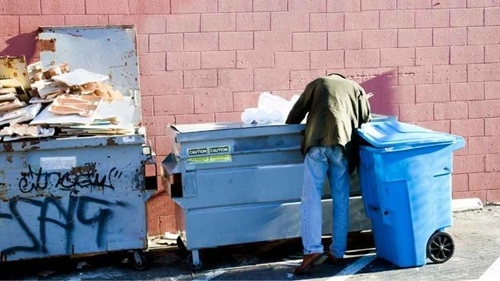No, dumpster diving behind stores is not explicitly illegal in the United States. However, its legality is influenced by factors such as property rights, local ordinances, and health regulations. Understanding these nuances is crucial to avoid potential legal repercussions.
Legal Framework
The U.S. Supreme Court case California v. Greenwood (1988) established that searching through trash left in public areas does not violate privacy rights, effectively making dumpster diving legal from a federal perspective. However, this ruling does not override state laws or local ordinances that may impose restrictions.
Property Rights and Trespassing
Many store dumpsters are located on private property. Accessing these areas without permission can lead to trespassing charges. For instance, entering a store’s back area or fenced-off section to access a dumpster without authorization is considered trespassing. It’s essential to distinguish between public and private property to avoid legal issues.
Local Ordinances
Municipalities may have specific regulations regarding dumpster diving. Some areas have explicit laws permitting or prohibiting the activity, while others may not address it directly. It’s crucial to check local laws to ensure compliance.
Health and Safety Regulations
Health departments may enforce rules that restrict the retrieval of certain types of waste, especially food, due to contamination risks. Violating health and safety regulations can lead to fines and other legal consequences.
Best Practices for Dumpster Diving Behind Stores
- Research Local Laws: Before engaging in dumpster diving, check local ordinances to ensure compliance.
- Seek Permission: Obtain consent from property owners when accessing dumpsters on private property.
- Avoid Restricted Areas: Respect “No Trespassing” signs and avoid locked or fenced-off dumpsters.
- Maintain Cleanliness: Do not leave a mess; littering can lead to legal issues.
Conclusion
While dumpster diving behind stores is not explicitly illegal, various legal considerations can impact its permissibility. Understanding and adhering to property rights, local ordinances, and health regulations are crucial to avoid legal repercussions.
Frequently Asked Questions
Q. Is dumpster diving behind stores legal?
Ans: It depends on local laws and property rights. Accessing dumpsters on private property without permission can lead to trespassing charges.
Q. Can I dumpster dive on private property?
Ans: Not without permission; doing so can result in trespassing charges.
Q. Are there health regulations affecting dumpster diving?
Ans: Yes, retrieving certain waste, especially food, may violate health regulations.
Q. What are the penalties for unauthorized dumpster diving?
Ans: Penalties can include fines, citations for trespassing or theft, and other legal consequences.
Q. How can I find out about local dumpster diving laws?
Ans: Consult local municipal codes or contact local authorities for information.

